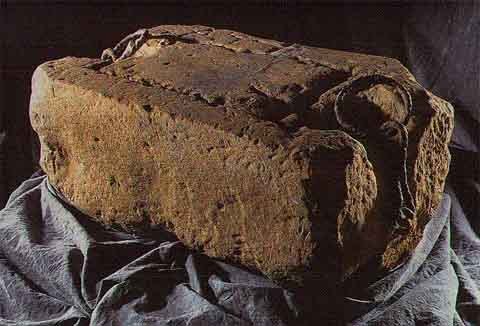What do you think?
Rate this book


256 pages, Hardcover
First published June 7, 2010
 Clifford's Tower, York where 150 Jews died.
Clifford's Tower, York where 150 Jews died. It appears that there is little known about Jews in England in ancient times, and every single pointer and find from the past is meticulously listed here. There are sentences that include 'more likely is the possibility that[..]' and some of the cited sources seem to be less than forensic.
It appears that there is little known about Jews in England in ancient times, and every single pointer and find from the past is meticulously listed here. There are sentences that include 'more likely is the possibility that[..]' and some of the cited sources seem to be less than forensic.  Jacob's Pillow aka Stone of Scone
Jacob's Pillow aka Stone of Scone